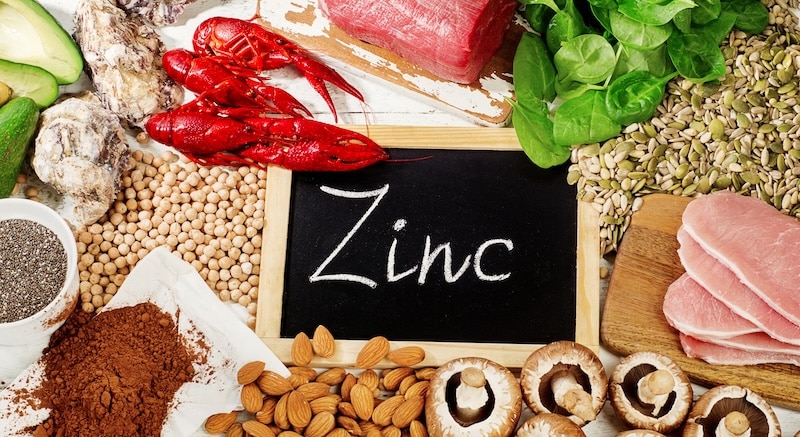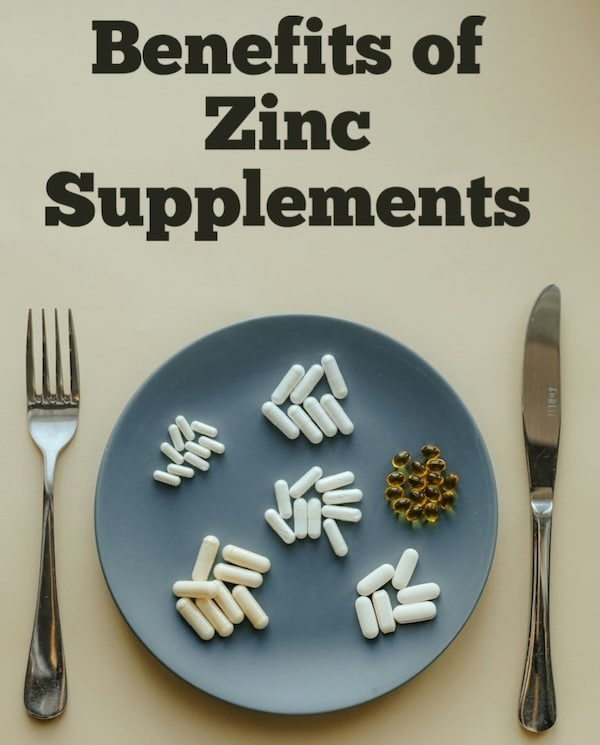Zinc Supplements review: Benefits, Dosage & Best Supplements
Zinc supplements have many benefits, whether addressing a zinc deficiency, boosting health, preventing a cold, or helping you sleep better.
Zinc is one of the most important minerals your body needs for optimal health, yet many people don’t get enough through their daily diet. From supporting the immune system to aiding in cognitive function, zinc plays a crucial role in maintaining overall wellness.
Although the Recommended Dietary Allowance (RDA) for zinc is just 11 mg for men and 8 mg for women, a surprising number of individuals—especially vegetarians, vegans, and those with specific health conditions—fall short of meeting their daily zinc needs.
This is where zinc supplements can make a significant difference, helping to close the gap and support essential bodily functions.
If you’re looking for an effective way to boost your zinc intake, Rootcha’s Zinc & Magnesium is one of the best options available.
Combining highly absorbable zinc picolinate with magnesium glycinate not only helps maintain healthy zinc levels but also supports improved sleep, energy, and immune function.
Last update on 2025-11-14 / This article includes affiliate links/Images via Amazon Product Advertising API. I may earn commissions on purchases made through these links.
The Role of Dietary Zinc in Health and Wellness
Zinc is an essential trace mineral that supports various bodily functions, from immune system regulation to wound healing and cognitive development. Since the human body does not store zinc, it must be consumed regularly through diet or supplements to maintain optimal health.
Adequate zinc intake is crucial for ensuring the proper functioning of enzymes, maintaining healthy cells, and supporting growth and development.
RDA of Zinc and Daily Zinc Needs
The Recommended Dietary Allowance (RDA) for zinc varies depending on age, gender, and life stage.
For adult men, the RDA is 11 mg per day, while for adult women, it is 8 mg per day.
Pregnant and lactating women require higher amounts, around 11-12 mg daily.
These values reflect the amount of zinc needed to support essential bodily functions, but individual needs may vary based on diet, lifestyle, and health conditions.
While meeting these daily requirements is essential, it is also important to note the Tolerable Upper Intake Level (UL) for zinc to avoid potential toxicity.
The UL for zinc is 40 mg per day for adults.
Exceeding this limit can result in adverse effects such as nausea, vomiting, diarrhea, and interference with the absorption of other essential minerals like copper.
Individual zinc needs may vary based on diet, lifestyle, and health conditions, making it crucial to balance adequate intake with the UL for optimal health.
Benefits of Zinc Supplements
Zinc supplements provide a practical solution for individuals who struggle to meet their daily zinc needs through food alone.
They are particularly beneficial in reducing zinc deficiency and supporting overall health.
Preventing Zinc Deficiency
Zinc supplements can help prevent and correct deficiency in populations with limited access to zinc-rich foods.
They are often used in treating diarrhea in children in developing countries and can reduce morbidity and mortality rates associated with zinc deficiency.
Zinc supplements are available in various forms, including zinc gluconate, zinc sulfate, and zinc picolinate, with the latter being highly bioavailable and effective.
Understanding Zinc Deficiency
Zinc deficiency affects millions of people globally, particularly in developing countries where access to zinc-rich foods is limited.
Even in developed nations, certain individuals may not meet their daily zinc requirements due to dietary restrictions or health conditions.
Zinc deficiency can lead to several health problems, including weakened immune function, delayed growth, skin disorders, and cognitive impairment.
Identifying High Risk Groups
Certain populations are at a higher risk of zinc deficiency, including:
- Pregnant and breastfeeding women
- Infants and young children
- Vegetarians and vegans
- Individuals with gastrointestinal disorders (e.g., Crohn’s disease)
- People with chronic illnesses like diabetes
These groups may benefit from zinc supplementation to prevent or address deficiency-related health concerns.
Immune System Support
Zinc plays a crucial role in supporting the immune system, helping to prevent and reduce the duration of illnesses like the common cold.
Zinc supplementation has been shown to reduce the severity and duration of common infections like the common cold.
According to one study, zinc supplements, when taken within 24 hours of the onset of cold symptoms, can significantly shorten the duration of the illness.
The study revealed that zinc can reduce cold symptoms by 12% to 48%, particularly in lozenge form with doses above 75 mg daily.
Additionally, zinc has been shown to reduce the severity of cold symptoms, making it an essential mineral for maintaining a strong and responsive immune system.
In populations with a high risk of zinc deficiency, particularly in young children, zinc can prevent infections like diarrhea and pneumonia, which are significant causes of morbidity and mortality globally.
Metabolism & Hormonal Health
Zinc influences the body’s metabolism by assisting in the function of enzymes involved in protein, carbohydrate, and fat metabolism.
Additionally, zinc plays a role in maintaining healthy hormone levels, particularly in regulating insulin sensitivity and testosterone production.
These functions are vital for maintaining energy levels, muscle function, and reproductive health in both men and women.
Cognitive Function & Mental Health
Zinc contributes to brain function and mental health by supporting neurotransmitter activity and reducing oxidative stress.
Studies show that low levels of zinc may be associated with cognitive decline and mood disorders like depression.
Supplementing with zinc can improve memory, learning ability, and emotional well-being, making it essential for cognitive health.
Growth & Development
Zinc is fundamental to growth, particularly during childhood, adolescence, and pregnancy. It helps in DNA synthesis, cell division, and protein production.
Zinc deficiency in children can lead to stunted growth and delayed development.
Adequate zinc intake during pregnancy supports fetal development and can reduce the risk of complications, such as low birth weight.
Sleep Support
Zinc is also linked to better sleep quality.
Especially when combined with magnesium, taking zinc before bed can help improve sleep duration and quality, especially in those with sleep disorders or high-stress levels.
This combination of minerals before bed may promote deeper and more restful sleep, especially for those with sleep difficulties.
Magnesium helps relax muscles and nerves, while zinc supports the production of melatonin, the hormone responsible for regulating sleep-wake cycles.
Additionally, taking zinc and melatonin with magnesium is a powerful, research-supported way to improve sleep quality.
Wound Healing & Skin Health
Zinc is essential for skin health, as it supports collagen formation and reduces inflammation.
It is commonly used in treating acne, eczema, and other skin conditions.
Note: If you’re struggling with eczema, especially when topical treatments aren’t working well, you may want to explore phototherapy for eczema, which is a clinically studied treatment option that has shown potential benefits for reducing symptoms of atopic dermatitis (Musters et al., 2021).
Furthermore, zinc helps wounds heal faster by aiding in tissue repair, making it an essential mineral for individuals recovering from injuries or surgeries.
Best Dietary Zinc Sources

While supplements can help, consuming zinc-rich foods is the best way to meet daily needs. Zinc is found in various foods and beverages, and a balanced diet can help you achieve adequate intake.
Foods
- Oysters: One of the richest sources of zinc.
- Beef and pork: Red meats are excellent sources.
- Poultry: Chicken and turkey provide significant amounts of zinc.
- Pumpkin seeds: A plant-based option rich in zinc.
- Nuts: Cashews and almonds are good sources.
- Legumes: Chickpeas, lentils, and beans are great for plant-based diets.
Drinks
Zinc is not typically found in high amounts in drinks, but some fortified beverages and supplements can provide zinc.
Fortified plant-based milk and fortified juices may offer additional zinc, particularly for those who follow a vegetarian or vegan diet.
Best Zinc Supplement
When choosing a zinc supplement, it’s essential to consider bioavailability and the inclusion of complementary nutrients like magnesium. In my opinion, one of the best zinc supplements on the market is Rootcha’s Zinc & Magnesium.
This product offers a potent blend of zinc picolinate and magnesium glycinate, two highly absorbable forms of these critical minerals.
Rootcha’s Zinc & Magnesium is free from synthetic additives and fillers, ensuring you get a clean, high-quality supplement.
This combination is perfect for improving immune function, supporting cognitive health, and promoting better sleep.
By providing both zinc and magnesium in one convenient formula, Rootcha offers a comprehensive solution for those looking to optimize their mineral intake and improve overall well-being.
Last update on 2025-11-14 / This article includes affiliate links/Images via Amazon Product Advertising API. I may earn commissions on purchases made through these links.
This website does not provide medical advice. This website site does contain affiliate links, and purchases may earn a commission.
Read my Medical Disclaimer, Review Disclaimer, and Publishing Policies for more details. Use of this site indicates acceptance of these terms.




